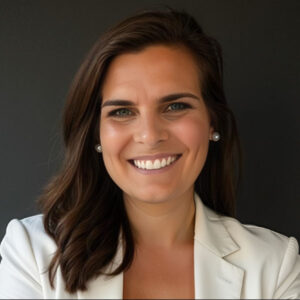Health Savings Accounts (HSAs)

Health Savings Accounts (HSAs)
Medicare legislation enacted in December 2003 provides for a prescription drug benefit that won’t exist until 2006. But also part of the new law is a provision that went into effect on January 1, 2004—the creation of the Health Savings Account (HSA). By opening an HSA, you may be allowed to deduct your contributions to the account, avoid tax on the earnings and even make withdrawals from the account tax free (when they are used to pay qualified medical expenses).
As is the case with almost every tax-favored savings program, you are going to have to understand the rules, carefully dotting the i’s and crossing the t’s, in order to gain the benefit. Shortly after the passage of the new Medicare law, the Internal Revenue Service issued some substantial guidance for those individuals and business owners who seek to take advantage of these new accounts.
The guidance comes in the form of questions and answers. Below we highlight some of the main points raised in the IRS discussion.
What is an HSA and who can establish one?
An HSA is an account established to help individuals and families save for certain current and future qualified medical expenses. Generally, anyone who is (1) covered by a high deductible health plan, (2) not covered by any other health care plans, (3) not entitled to Medicare benefits and (4) may not be claimed as a dependent on another person’s tax return may establish an HSA.
The IRS defines a “high-deductible health plan” as self-only health insurance coverage with an annual deductible of at least $1,000 and annual out-of-pocket expenses (deductibles, copayments and other amounts, but not premiums) to be paid of no more than $5,000. For family coverage the annual deduction must be at least $2,000 and annual out-of-pocket expenses no more than $10,000. These amounts are indexed for inflation. However, a health plan may offer preventive care without a deductible (or with only a small deductible) and still qualify as “high-deductible.”
What are the rules regarding contributions to an HSA?
For an HSA established under an employer’s plan, the employer, the employee or both may contribute to an employee HSA. For an HSA established by a self-employed or unemployed individual, the individual contributes. Family members also may make contributions to an HSA on behalf of another family member (presuming, of course, that the other family member is otherwise eligible to have an HSA).
Contributions to an HSA are deductible, whether or not deductions are itemized on an individual’s federal tax return. Contributions made by a family member on behalf of an individual are deductible by the individual. When an employer makes contributions to an employee’s HSA, they are treated as employer-provided coverage for medical expenses and are not included in the employee’s income.
HSAs are “portable.” An account owner is not dependent on a particular employer to enjoy the advantages of having an HSA. Similar to owning an IRA, if the account
owner changes jobs, the HSA goes with the individual.
In addition, the interest and investment return generated by the contributions to an HSA are not taxable.
How are distributions from HSAs treated?
An individual may receive distributions from an HSA at any time. When the distributions are used exclusively to pay for qualified medical expenses of the account owner, his or her spouse or dependents, they are not taxable. Any amount withdrawn that is not used for qualified medical expenses is taxable and subject to an additional 10% tax. There are exceptions: Distributions made after the account owner’s death, for disability or upon reaching age 65 won’t be taxable. If an account owner is no longer eligible to make HSA contributions (for example, he or she becomes eligible for Medicare), distributions used to pay qualified medical expenses will continue to escape taxation.
Generally, qualified medical expenses are the expenses that are considered deductible for income tax purposes, but only to the extent that they are not covered by other insurance. Health insurance premiums are not considered qualified medical expenses. But premiums for long-term care insurance, COBRA health care continuation coverage and health care coverage while an individual is receiving unemployment compensation are considered qualified medical expenses.
What happens when an account owner dies?
Upon death any remaining balance in an HSA becomes the property of the designated beneficiary. When a surviving spouse is the beneficiary, the account becomes the spouse’s. The spouse is subject to income tax only to the extent that distributions from the HSA are not used for qualified medical expenses.
If the HSA passes to someone other than a surviving spouse, the HSA ceases to exist as of the date of the account owner’s death. The named beneficiary is required to include in his or her income the fair market value of the HSA’s assets at the time of the account owner’s death. Any amount included in income may be reduced by distributions from the HSA that are used to pay the account owner’s qualified medical expenses (unless the beneficiary is the account owner’s estate), as long as the expenses are paid within one year after the account owner’s death.
—————————————————————————————————————————————————————————————————————
We hope you found this article about “Health Savings Accounts (HSAs)” helpful. If you have questions or need expert tax or family office advice that’s refreshingly objective (we never sell investments), please contact us or visit our Family office page or our website at www.GROCO.com. Unfortunately, we no longer give advice to other tax professionals gratis.
To receive our free newsletter, contact us here.
Subscribe our YouTube Channel for more updates.

Alan Olsen, is the Host of the American Dreams Show and the Managing Partner of GROCO.com. GROCO is a premier family office and tax advisory firm located in the San Francisco Bay area serving clients all over the world.
Alan L. Olsen, CPA, Wikipedia Bio

GROCO.com is a proud sponsor of The American Dreams Show.

The American Dreams show was the brainchild of Alan Olsen, CPA, MBA. It was originally created to fill a specific need; often inexperienced entrepreneurs lacked basic information about raising capital and how to successfully start a business.
Alan sincerely wanted to respond to the many requests from aspiring entrepreneurs asking for the information and introductions they needed. But he had to find a way to help in which his venture capital clients and friends would not mind.
The American Dreams show became the solution, first as a radio show and now with YouTube videos as well. Always respectful of interview guest’s time, he’s able to give access to individuals information and inspiration previously inaccessible to the first-time entrepreneurs who need it most.
They can listen to venture capitalists and successful business people explain first-hand, how they got to where they are, how to start a company, how to overcome challenges, how they see the future evolving, opportunities, work-life balance and so much more..
American Dreams discusses many topics from some of the world’s most successful individuals about their secrets to life’s success. Topics from guest have included:
Creating purpose in life / Building a foundation for their life / Solving problems / Finding fulfillment through philanthropy and service / Becoming self-reliant / Enhancing effective leadership / Balancing family and work…

MyPaths.com (Also sponsored by GROCO) provides free access to content and world-class entrepreneurs, influencers and thought leaders’ personal success stories. To help you find your path in life to true, sustainable success & happiness. It’s mission statement:
In an increasingly complex and difficult world, we hope to help you find your personal path in life and build a strong foundation by learning how others found success and happiness. True and sustainable success and happiness are different for each one of us but possible, often despite significant challenges.
Our mission at MyPaths.com is to provide resources and firsthand accounts of how others found their paths in life, so you can do the same.
From the Streets to Self-Reliance
How Joseph Grenny’s Other Side Village Is Rewriting the Homelessness Playbook A 2 a.m. Alarm and a Box of World-Class Doughnuts At two o’clock each morning in downtown Salt Lake City, former rough-sleepers slip into spotless aprons, fire up industrial mixers, and begin turning out pillowy brioche rings glazed with passion-fruit icing and drizzled…
Building a Legacy: A Fireside Chat with Martin Luther King III
In a thought-provoking fireside chat at our Legacy Builder’s Conference, Martin Luther King III shared profound insights on the concept of legacy, leadership, and the moral imperatives facing society today. Speaking with Alan Olsen, he reflected on his father’s enduring impact and his own efforts to carry forward that mission in today’s world. Defining His…
Turning Ordinary Lives into Living Legacies
“There was a measurable connection between how well they knew their family stories and how successful they were.” — Kasia Flanagan, founder of Everyday Legacies When historian‑turned‑biographer Kasia Flanagan examined the lives of mixed‑race German‑Samoan descendants for her PhD, she expected to chart migration patterns and cultural shifts. What she didn’t expect was the data point that changed her career:…
Roy Moëd on Turning Memories Into Masterpieces
“There are two dates: you’re born and you die — but it’s the dash in between that tells your story.”– Roy Moëd In an age of scrolling feeds and vanishing digital memories, Roy Moëd is championing something different — something timeless. Through his company LifeBook Memoirs, he’s helping individuals turn their life stories into beautifully…



